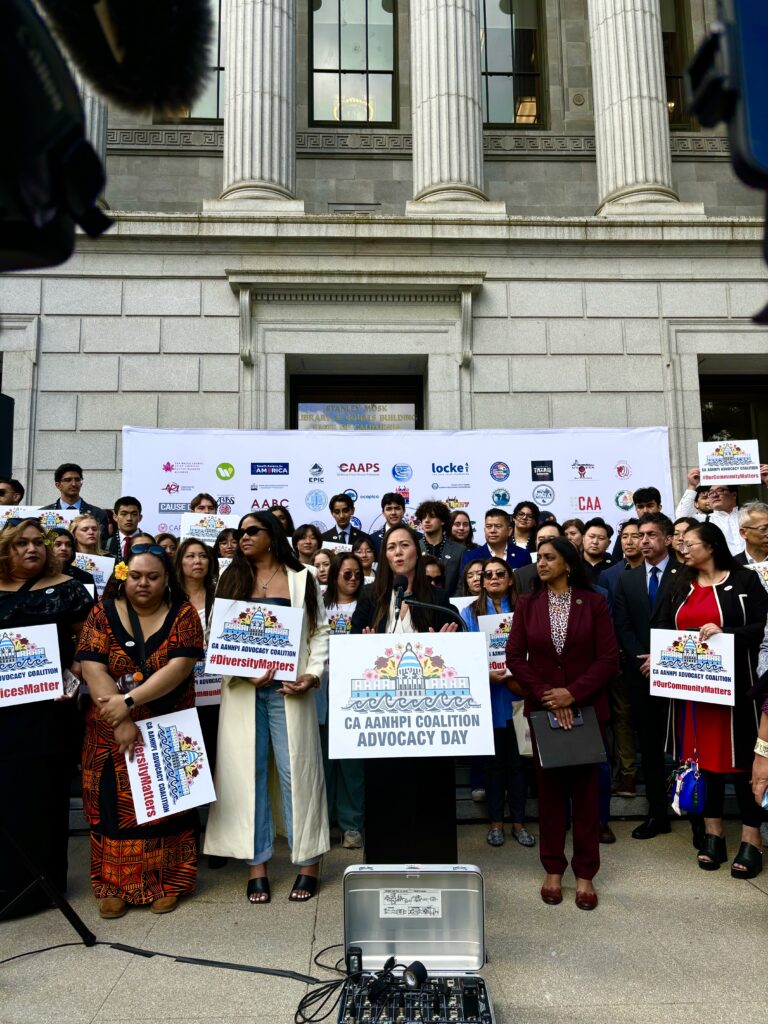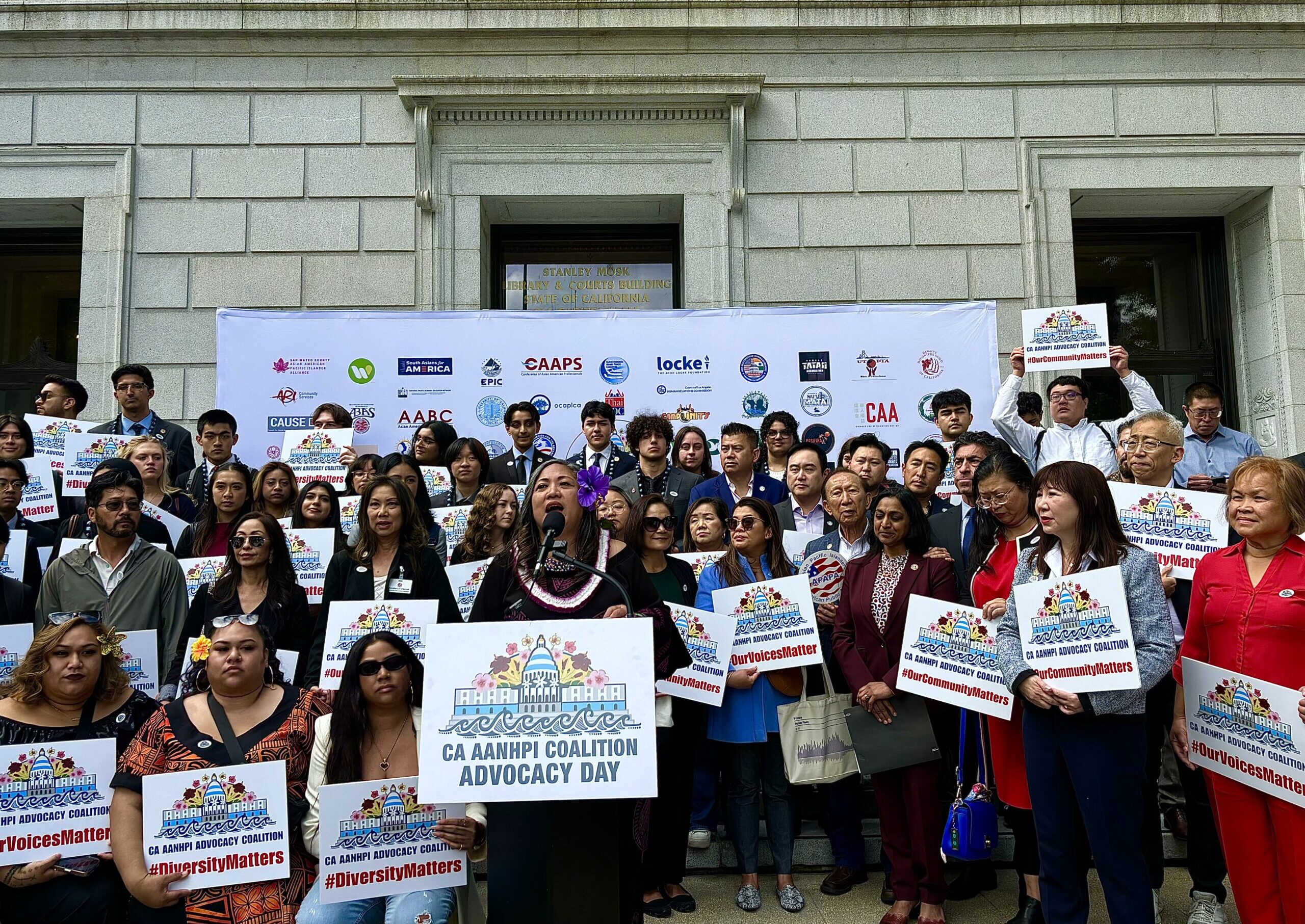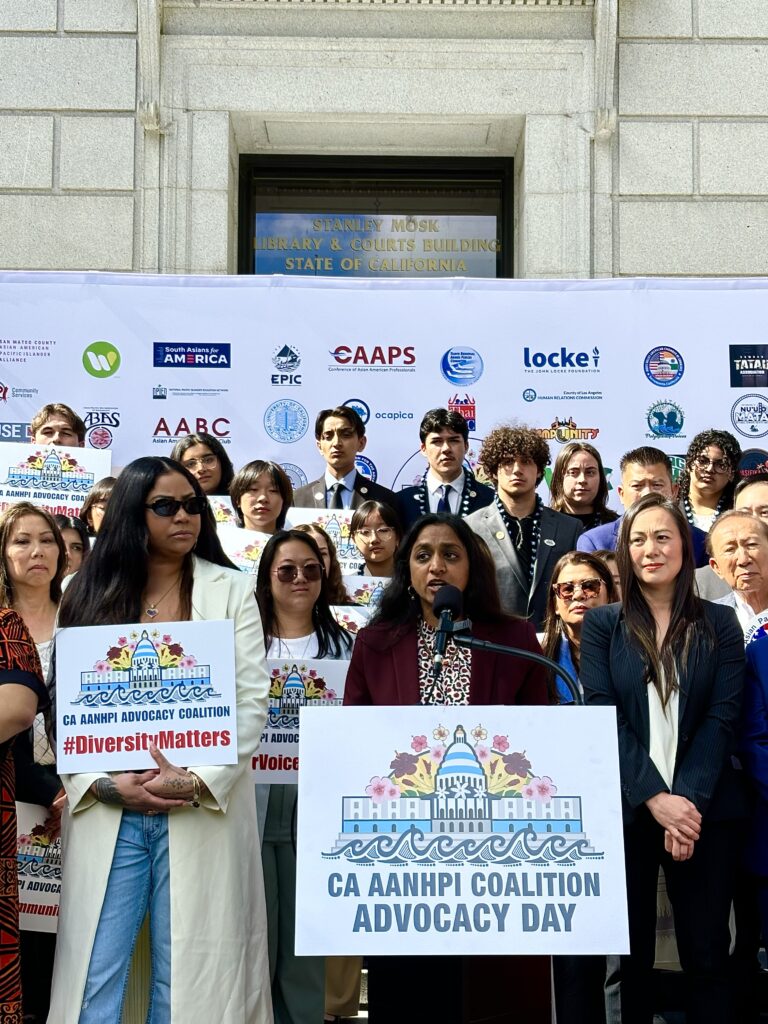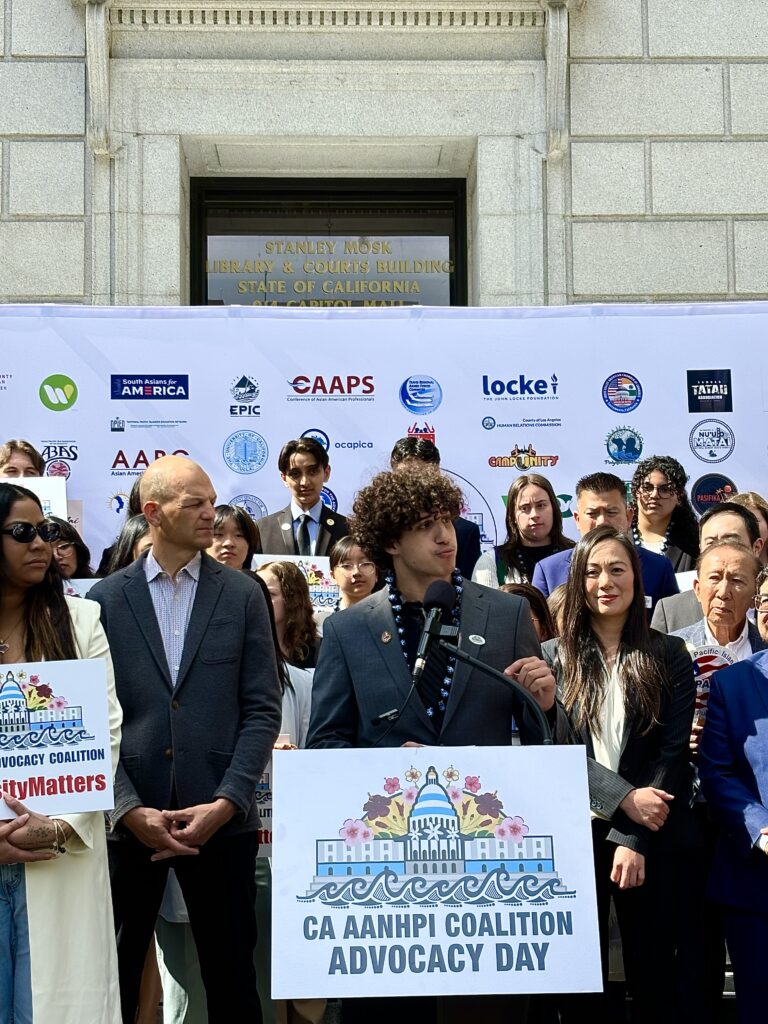With immigrants threatened under the new federal administration, over 100 Asian American organizations rallied outside the capitol to push for state-level protections.
The Monday, April 28 morning rally — led by Assemblymembers Stephanie Nguyen and Dr. Darshana Patel and Sacramento Mayor Kevin McCarty — kicked off the second-ever annual Asian American and Hawaiian / Native Pacific Islander (AANHPI) Advocacy Day, held by the coalition Asian Pacific American Public Affairs.
Ralliers assembled into 50 teams to reach 115 legislative offices over the course of the day, making it the largest statewide mobilization of AANHPI communities since the Stop Asian Hate movement.
The groups promoted five new bills: AB 1242, promoting census-based non-English language access in state documents; AB 1186, disaggregating racial and ethnic categories for state demographic data; AB 863, expanding language access for tenants in danger of eviction; AB 590, issuing $950,000,000 in bonds funding social housing programs; and AB 49, prohibiting public school employees from letting immigration officers enter school or child care sites without identification, a warrant and approval from the superintendent.
“This is California. We shouldn’t have to open up mail and not understand the language,” said rally speaker Assemblymember Nguyen (D-10), who authored the state document language access bill AB 1242, outside the Stanley Mosk Library and Courts at the Sacramento Capitol Mall.

California, the most diverse state in the country, is home to over 15 million immigrants, or roughly one in four residents, speaking over 200 languages.
Of all Californians, over 6 million, or 16%, are AANHPI.
“I grew up having to translate documents from the county and the state to my parents, because they weren’t in Vietnamese. As a third grader, I was trying to understand what the documents meant,” Nguyen explained. “Over 40 years later, those documents are still not translated properly in Vietnamese, nor all of our AAPI community languages.”
She added that with new federal program cuts and equity rollbacks, linguistically accessible government documents could mean the difference between health and sickness, or safety and deportation.
“As a Vietnamese American daughter who grew up in a very traditional house, my parents would die right now if they saw me here fighting for this,” Nguyen continued. “They taught me to stay quiet, to sit down, to not cause noises. They caused me to not do anything, and that doesn’t help us, which is why it’s so crucial that we have over 100 organizations here today to fight for our community.”
“While we thrive on diversity, we have not fully embraced it,” said Assemblymember Patel (D-76), who authored the racial and ethnic category expansion bill AB 1186.
“When the state collects demographic data, it groups Californians into broad racial categories that flatten our differences and overlook distinct cultural differences and needs. For example, someone who is Korean and someone who is Filipino are placed in the same label as Asian,” she continued.
“Imprecision doesn’t just hurt our representation, it hurts our state’s ability to deliver us meaningful results,” Patel added. “Without accurate data, we cannot know if our programs are reaching those who need them most. We cannot govern as effectively as Californians deserve.”
As of early May, both Nguyen’s bill and Patel’s have passed the preliminary Assembly policy committee unanimously, and are set for a financial review by the Appropriations Committee before a full Assembly vote.
The dates for the review and vote are still unscheduled.
The speakers, later joined by Assemblymembers Mike Fong, Alex Lee and Al Muratsuchi, were also joined by APAPA intern and CSU Sacramento junior Dylan Morgan, who closed the rally.
“California’s identity is at stake,” said Morgan of recent policies under the Trump administration threatening protections for the state’s immigrants. “When language, immigration and diversity are under attack, I am under attack, you are under attack and we are under attack.”
These policies include a flurry of executive orders terminating federal diversity, equity and inclusion (DEI) initiatives including grants and contracts; an executive order making English the official language of the U.S.; and a mass deportation campaign involving Immigration and Customs Enforcement (ICE) raids nationwide, attempts to strip legal status from hundreds of thousands of lawful immigrants and extradition of hundreds of Venezuelan migrants to El Salvador under gang membership allegations.
“During the first Trump administration, my friend’s dad was deported,” said Morgan. “I will never forget the day my friend came running up to our door, knocking my dad, they took him. He’s gone. They had dragged him away while he was working in the fields to feed his family, my family and your family.”
“This man who took care of his neighbors, community and family, which I believe is what being an American is all about, was taken away from his wife and newborn child simply for crossing lines on a map to give his family a better life,” he continued.
“What our fight really comes down to is what kind of country we want,” Morgan added: “A country where they take away the people who feed us, or a country where we are free to be who we are.”
APAPA is set to release legislative updates on its five priority bills in late June.






